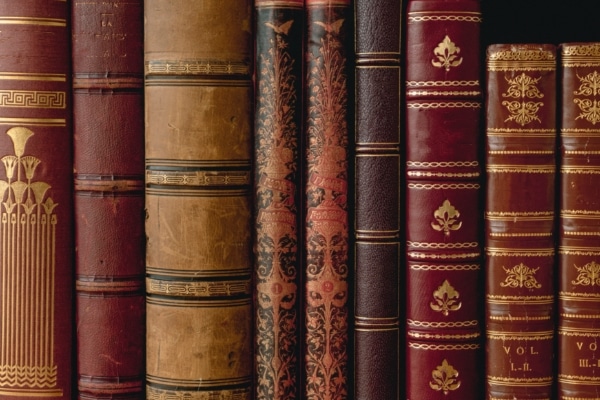
I must admit there’s something special about books. A lovely old-fashioned read is not only good for the brain but also for the soul. The ideas in these titles help mould our identities, and the characters – even the fictional ones – become cherished friends. So, how do you declutter your books, and what do you do with the used books you no longer want?
Sort and Declutter
Determine Your Available Space
The first step is to determine how much space you have available for your book collection. Take a photo of each of your bookshelves so you can easily see them. This will reduce distractions that might occur if you wander around the house. If you’re moving to a home with less shelf space, use the amount of shelving you will have in your new home.
Find Your Favourites
Next, collect all your books in one room. Pile them carefully with the spines facing you to identify each book quickly. Then, place your absolute favourite books on the shelves. If you have trouble picking out your favourites, do what I call the Evacuation Exercise. Pretend emergency services knocked on your door and said you have two minutes to evacuate your home. Set a timer, and pack your favourite books using a small moving box or sturdy laundry basket until the timer goes off. Place your favourite books on the shelves and repeat the exercise until your shelves are almost full. Remember you want to leave a section for your “to read” pile.
Tip: If you’re an avid reader and easily tempted to read your books while (or instead of) decluttering, ask a friend or hire the Out of Chaos team to help keep you on track.
What to Let Go Of
- Cookbooks you no longer use
- Books you and your family have outgrown
- Hobby manuals and guides for activities you no longer do (gardening, knitting, etc.)
- Self-help, textbooks, and reference material more than five years old (parenting, psychology, chemistry, etc.)
- Travel guides that are more than three years old.
- Novels you bought ages ago but have never read.
- Anything mouldy, mildewy, smelly, or water-damaged.
Now, it’s time to decide what to do with the books you no longer want. Typically, people sell, donate, or recycle/trash them. But first, flip through each book quickly. You want to ensure that there is nothing stuck between the pages, such as a treasured bookmark, photograph, receipt, cheque, or five-dollar bill. If there are doodles or sensitive information scribbled in the margins, or if pages are missing, then do not sell or donate those books. (FYI: Over the years, the Out of Chaos team has discovered all sorts of forgotten treasures in books. Please check your books carefully.)
Sell
If your books are in good condition, they may have resale value. A few shops in Vancouver buy used books; others accept donations. Check out their websites for details on what they buy and resell.
Consider signing up for a seller’s account on Amazon if you have an extensive collection of good, used books. You can reach a much larger buying audience. You can also sell books online (kijiji, Facebook Marketplace) or even host a garage sale.
Valuation of Old Books
Generally, old books have little value to collectors, but it depends on the condition, rarity, and demand – the book’s condition is the most important criterion for valuation. Other features that influence the book’s value include:
- First or limited-edition printing
- Signed by author
- Owned and signed by another famous person (interesting provenance)
- Whether the book is in demand
For more information about discovering the value of an older book, AbeBooks has two good videos on identifying a first edition and what factors make a book valuable.
Donate
Some charitable agencies will accept used books. Check out our list of organizations that take those in good condition and of current interest. Some are used for fundraising sales, and the proceeds support their programs. Charities that take household goods might accept books. Please check with them before you drop them off at their locations or in their donation bins.
Charities and bookstores are generally not interested in outdated or marked-up books or those in poor condition. Think back on how much our grandparents paid for those sets of encyclopedias (in installment plans to boot!). It can make us feel guilty because they are likely not worth anything today. However, daycare, senior, and community centres love to use photos for crafts and other projects. Ask around at local organizations or list them on sites like Buy Nothing or Freecycle. You might be surprised at who would be willing to take them off your hands.
Upcycle
Turning your old tomes into something unique and useful is a great idea. If you have the time and the talent, The Family Handyman has 15 ways to upcycle old books, including turning them into secret hiding spaces for valuables, creating lamps, planters, and all sorts of things. For more ideas, search “upcycle used books” on Pinterest and prepare yourself for amazement.
Recycle
Paperbacks are generally recyclable. You can only recycle the inside pages of hardcover books. Unfortunately, the outer covers and spines go in the garbage because they contain leather, fabric, or other non-recyclable materials. Contact the City of Vancouver Transfer Station & Recycling Depot or the Recycling Council of BC for more information on how to recycle books.
If you need a little assistance in downsizing your book collection, contact the Out of Chaos team today.
